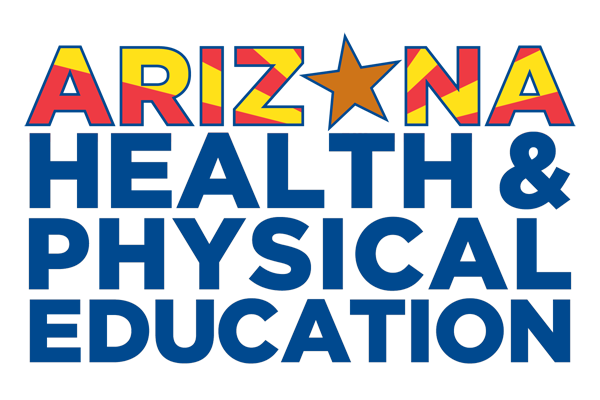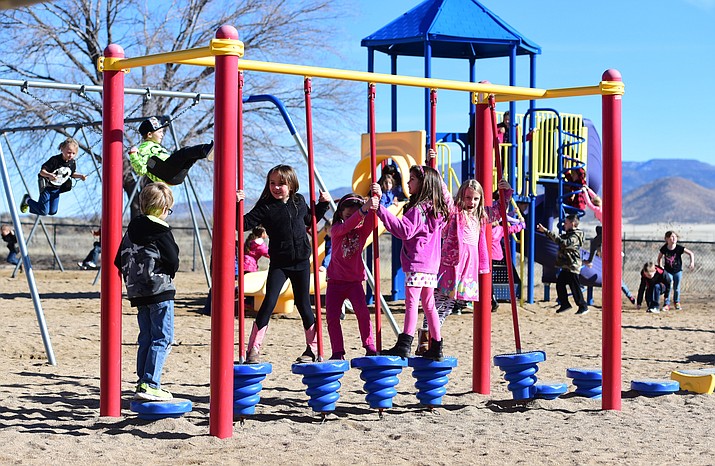Hello Arizona Health and Physical Education members!
It’s so hard to believe that we’ve already made it through the first quarter and it’s time for fall break! I say bring it on!! Not to mention it is almost time for CONVENTION! Remember our state convention and the APE conference are combining this year for two days of awesome sessions at the Phoenix Convention Center, October 26-27, 2023. Click below to register:
This month’s blog focuses on a topic that is very important to me. Working with students with disabilities, whether they be cognitive or physical, I understand the importance of physical activity for all students. As physical educators, I am sure you all understand the importance of physical activity as well, but many of our classroom teachers withhold physical activity, recess and physical education as a form of discipline. So how can we educate our classroom teachers on how important time in physical education is for their students’ well-being?
Here are just a couple of scenarios that unfortunately are far too common:
- In Florida, kids in a second-grade class were told to walk laps during recess after no one confessed to taking money from a classmate.
- In Kentucky, a first grader who hadn’t been paying attention in class had to sit on a bench next to his teacher and watch his friends play.
- In Texas, after a few students misbehaved, an entire first-grade class had to sit inside silently for recess.
- In Arizona, a first-grade teacher walked her entire class to physical education but kept two girls from telling them they could not ‘do PE today’ because they were naughty in the classroom.
A typical school day for most students is very structured and filled with academic demands. Both recess and physical education serve as a critical outlet and break for kids, according to pediatricians and child development experts (Mader, 2022). Physical activity during the school day, whether it be in the form of recess, physical education or even physical activity breaks in the classroom, helps improve student learning, social-emotional skills, behaviors, and attention during class (actionforhealthykids.org, 2023). Administering or withholding physical activity as punishment is inappropriate and constitutes an unsound education practice because it inhibits the development of a positive attitude toward physical activity (SHAPEAmerica, 2021).
But, on any given day, an untold number of children in elementary schools nationwide have all or part of their recess revoked for infractions such as failing to finish their work, talking out of turn or not following directions. Oftentimes, these are the students who need physical activity the most! The long-standing and common punishment in schools occurs even though the practice flies in the face of considerable research supporting the importance of free play for young children (Mader, 2022).
So as physical educators, why not provide our administration and classroom teachers with alternatives to withholding the oh-so-important time engaging in physical activity? First thing is we need to educate our colleagues on the importance and benefits of physical activity.
Benefits of Physical Activity
- Improves attention and reduces fidgeting later in the school day
- Over 80% of principals report that recess has a positive impact on academic achievement
- Two-thirds of principals report that students listen better and are more focused in class after recess
- 96% of principals believe recess has a positive impact on social development and 97% believe it has a positive impact on well-being (RWJF, 2010).
- Provides a mental and physical break from the academic challenges of the day (Jarrett et al., 1998).
- Allows students to be active and release energy (Ridgway et al., 2003).
- Creates an opportunity for students to be social and use their imagination (Pelligrini & Bohn, 2005).
Alternative Discipline Options
Below are some alternative disciplinary options to taking away physical activity. Disciplinary actions should be appropriate, match the level of misbehavior, and be immediate. If a student is told at 8:15 am that they are missing recess, which happens at 9:30 am, chances are they will have forgotten why their misbehavior.
- First and foremost, reinforce positive behavior through non-food rewards, recognition, or an incentive program. Positive, consistent rewards can encourage good behavior from students.
- social rewards, such as positive attention, praise, a pat on the shoulder, or thanks, are often more highly valued by children than a toy or food and affirm a child’s self-worth (
- reward students with special privileges (going first, choosing the class activity, helping the teacher, door holder, line leader) or stickers, stamps and/or school supplies.
- students receive tickets for good behavior (‘caught being good’) such as being respectful, following directions being helpful. All tickets go into a basket and the teacher pulls some out for prizes at the end of the week.
- Create a space for students to use for conflict resolution and to reset (e.g., Calm Corner, Peace Center, Conflict Resolution Center).
- Include social and emotional learning into your curriculum ensuring connections to the competency of self-management and exhibiting self-discipline.
Take Action – what can you do?
- Educate your school administrators, teacher and parents about the importance of recess and physical education as well as the health benefits of physical activity and how it impacts learning.
- Ask for 5 minutes during a staff meeting to share information on the benefits of physical activity and a list of alternatives to withholding recess and physical education. OR send a staff-wide email to communicate your message, connecting it back to your district wellness policies.
- Provide a staff development on using classroom physical activity breaks and classroom management techniques.
For more information on SHAPE America – Society of Health and Physical Educators and the position that withholding physical activity (PA) and physical education (PE) as a form of punishment and/or behavior management is inappropriate. In addition, administering physical activity as punishment is inappropriate, please see the following document:
https://www.shapeamerica.org/Common/Uploaded%20files/uploads/2021/advocacy/position-statements/Physical-Activity-Should-Not-Be-Used-as-Punishment-and-or-Behavior-Management.pdf
Thanks for taking the time to read this and I hope you will take action and inform your administrators, teachers and parents about the importance of allowing our kids to participate in recess, physical education and other forms of physical activity.
Resources:
actionforhealthykids.org, (2023). Alternatives to withholding recess as punishment. Action for Healthy Kids. Retrieved Oct 1, 2023 from: https://www.actionforhealthykids.org/alternatives-to-withholding-recess-as-punishment/
Jarrett, O.S., Maxwell, D.M.,Dickerson, C., Hoge, P., Davies. G., and Yetley, A. (1998). Impact of recess on classroom behavior: Group effects and individual differences. Journal of Educational Research (92), pp. 121-126
Mader, J. (2022). The Hechinger Report. Teachers often cancel recess as a punishment. A growing number of states want to change that. Retrieved Oct 1, 2023 from: https://www.nbcnews.com/news/us-news/teachers-cancel-recess-punishment-state-laws-rcna27531
Pellegrini, A. D., & Bohn, C. M. (2005). The Role of Recess in Children’s Cognitive Performance and School Adjustment. Educational Researcher, 34(1), 13–19. http://www.jstor.org/stable/3699908
Ridgway, A., Northup, J., Pellegrin, A., LaRue, R., & Hightsoe, A. (2003). Effects of Recess on the Classroom Behavior of Children With and Without Attention-Deficit Hyperactivity Disorder. School Psychology Quarterly, 18(3), 253–268. https://doi.org/10.1521/scpq.18.3.253.22578
Robert Wood Johnson Foundation (RWJF), (2010). The state of play: Gallup Survey of principals on school recess. Princeton, NJ: RWJF
SHAPEAmerica, 2021. Physical Activity Should Not Be Used as Punishment and/or Behavior Management. Retrieved Oct 1, 2023 from: https://www.shapeamerica.org/Common/Uploaded%20files/uploads/2021/advocacy/position-statements/Physical-Activity-Should-Not-Be-Used-as-Punishment-and-or-Behavior-Management.pdf

